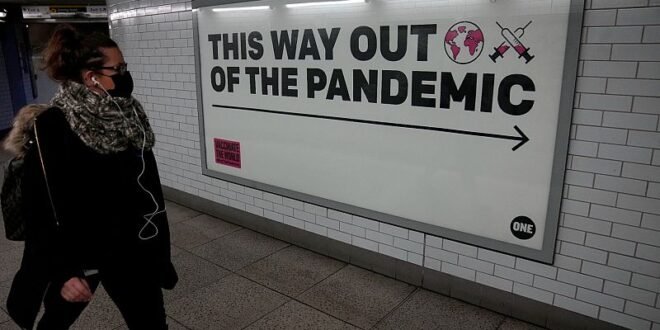Strengthening Europe’s Health Preparedness
In the post-COVID era, the European Union is adopting a proactive stance to ensure it is better prepared for future health crises. This approach focuses on building a robust infrastructure that can respond swiftly and effectively to a wide range of health threats. The new EU Medical Countermeasures Strategy, launched in Strasbourg, outlines a comprehensive plan to enhance readiness and resilience across the continent.
The strategy aims to improve access to essential medical tools such as vaccines, therapeutics, diagnostics, and personal protective equipment (PPE). These are referred to as medical countermeasures, which serve as critical resources during health emergencies. According to an EU official, these tools form an arsenal that enables the protection of citizens when a crisis arises.
The lessons learned from the COVID-19 pandemic have highlighted significant gaps in Europe’s ability to access and distribute these vital resources. In response, the strategy proposes 17 key actions designed to ensure equitable and timely access across the EU. These actions follow an “end-to-end” approach, covering everything from threat surveillance to the final deployment of countermeasures.
Addressing a Wide Range of Health Threats
The strategy addresses a broad spectrum of potential health threats, including pandemic-prone respiratory and contact-based viruses like COVID-19, zoonotic diseases such as avian flu, and emerging or re-emerging diseases like Ebola. It also considers the hypothetical “Disease X,” a term used by the World Health Organization (WHO) to represent an unknown pathogen that could cause a major global health crisis.
Other threats include vector-borne viruses like dengue and West Nile, transmitted by mosquitoes and ticks, as well as antimicrobial resistance (AMR), often called the “silent pandemic.” AMR causes approximately 35,000 deaths annually in the EU. Additionally, the strategy includes security-related threats, such as chemical attacks and consequences of armed conflict, though it does not currently address nuclear threats.
Overcoming Challenges
Despite these efforts, several challenges remain. One of the primary hurdles is the complexity of stockpiling medical countermeasures. As EU Commissioner for Preparedness Hadja Lahbib noted, “To stockpile a vaccine or a treatment, it first needs to exist.” To tackle this issue, the Commission plans to accelerate the development of medical countermeasures through a new initiative known as the Medical Countermeasures Acceleration program. This program will serve as a one-stop shop, guiding researchers and small and medium-sized enterprises (SMEs) from early-stage research through to production.
The EU is also implementing a flexible stockpiling strategy tailored to specific risks. A recent example is the pre-positioning of emergency medical kits, PPE, and portable detectors from the rescEU stockpiles during the 2024 Paris Olympic Games. Such measures can provide a temporary boost to national capacities during exceptional events, according to Lahbib.
The Importance of Information Sharing
Despite these advancements, a major challenge remains: information sharing. “Every strategy needs a budget, and of course, preparedness doesn’t come for free, but the most important thing right now is better coordination,” Lahbib emphasized. Currently, the EU lacks a comprehensive overview of which countries have what supplies, where the gaps are, and what’s missing.
Member states are often reluctant to share information on strategic stockpiles due to national interest concerns. However, improved transparency is crucial to avoid duplication and maximize efficiency. As of now, only three countries — Czechia, Finland, and Estonia — are fully engaged in centralised EU stockpiling efforts, leaving the status of the remaining 24 member states unclear. This lack of transparency highlights the need for stronger coordination and collaboration among EU nations to build a more resilient health system.
 Info Malang Raya Its All About World News
Info Malang Raya Its All About World News




